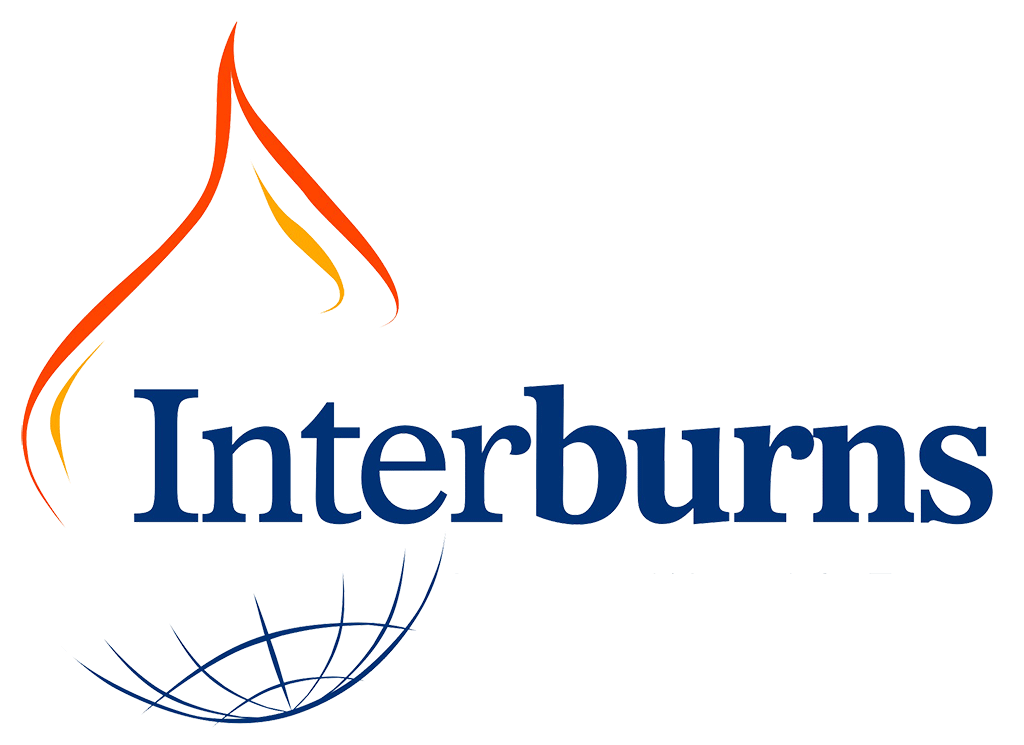Seeing the positive impact of training
Interburns endeavours to see tangible change and sustainable good practice in burns services. We encourage a step-by-step approach to quality improvement (QI) and aim to follow up training with support and monitoring of QI projects. We are always delighted when we hear stories about positive impact on practice.
ABC(Rehabilitation) is one of three specialist modules for core members of the burn team. Participants of ABC(Rehab) Ghana in 2023, recently told us how our training changed and improved the way things were done, positively impacting patient care and influencing wider members of the team.
Chantal Ingabire, a physiotherapist at Kibogora Level Two Teaching Hospital, Western Province of Rwanda, works in a remote area with no dedicated burn unit. The training ‘significantly impacted my job performance’, giving her advanced skills in restoring mobility and helping patients return to daily life. The training showed her how correct positioning, splinting, exercises, massage and stretching, along with reassurance, and encouragement, dramatically helped her patients. Using a combination of pharmacological and non-pharmacological methods, such as nerve blocks, patient-controlled analgesia, and cognitive-behavioural techniques, Chantal achieved ‘better pain control and improved patient comfort and satisfaction’.
She says: before the training, many of my patients struggled with post-burn contractures because I was unaware that early stage stretching and mobility could prevent these issues. Now, my patients are improving, and there are no longer post-burn contractures’.
Ochuodho Bwana from Muhimbili National Hospital, Dar es Salaam, Tanzania says the training ‘helped build confidence to attend to burn patients, compared to past experience where I had to struggle for decision making for the right techniques’. Ochuodho has since trained staff in subjects such as anatomy, pain management, inhalation injuries and using local materials for splinting.
Listening to burn survivors was particularly powerful as they helped him understand the unbearable level of pain experienced during dressing changes: ‘two patients narrated that during dressing they experienced pain of different intensity according to the dresser. I used the experience to connect with my team and they modified the type of analgesics to be used during dressing’.
Blessing Jamuteni a physio therapist from Queen Elizabeth Hospital, Blantyre, Malawi was burned as child and truly understands that ‘every burn survivor requires a dedicated and passionate burns professional to heal in every aspect’. Having participated in Essential Burn Care (EBC) and ABC(Rehab), he is now a member of Interburns faculty and regards the training as ‘a game changer to the quality of life of survivors back home Malawi. We covered so many great topics with the greatest tutors from the world’s best burn therapists’.
Rosine Legba from Benin arrived back home in the aftermath of a mass casualty burn disaster caused by a fire at an illegal gasoline warehouse. Within 48 hours she was able to take charge of 12 patients with 2nd and 3rd degree burns, 15% to 40% of whom had inhalation wounds. She says ‘my entry into the care team was not easy, but I was able to start caring for patients 72 hours after the tragedy. My first action was to give a quick briefing on the essentials of Interburns training to my colleagues and gain the trust of the team who were working two days before me’.
Rosine took an active part in the dressing process, keeping an eye on the application of bandages, and ensuring that each patient was correctly positioned to prevent oedema and retraction. By week 2, only 7 patients remained in the unit. The team made anti-retraction splints and carried out conventional rehabilitation, taking charge of patients for 5 or 6 days out of 7. From week 3, they used play therapy with music selected by the patients, and devised dance steps depending on the topography of the injury; this was a great success. She says: ‘all 7 patients were discharged without sequelae’.
Samuel Mayah from Sierra Leone says: ”As a newly qualified physiotherapist, this training was a timely source of inspiration for me. It shed light on the specific needs of burn victims, especially those from the 2021 fire incident who received therapy at the facility where I am employed. I took the initiative to enhance my skills through self-learning and familiarized myself with technical equipment like lasers, sewing machines, and others to improve our services and reduce the reliance on external technical expertise for making pressure garments.
The training was truly transformative for me. It expanded my knowledge and skills and ignited a passion within me to serve burn victims with dedication and compassion. I am grateful to have participated in such a meaningful event and look forward to see more great achievements from this experience’.
